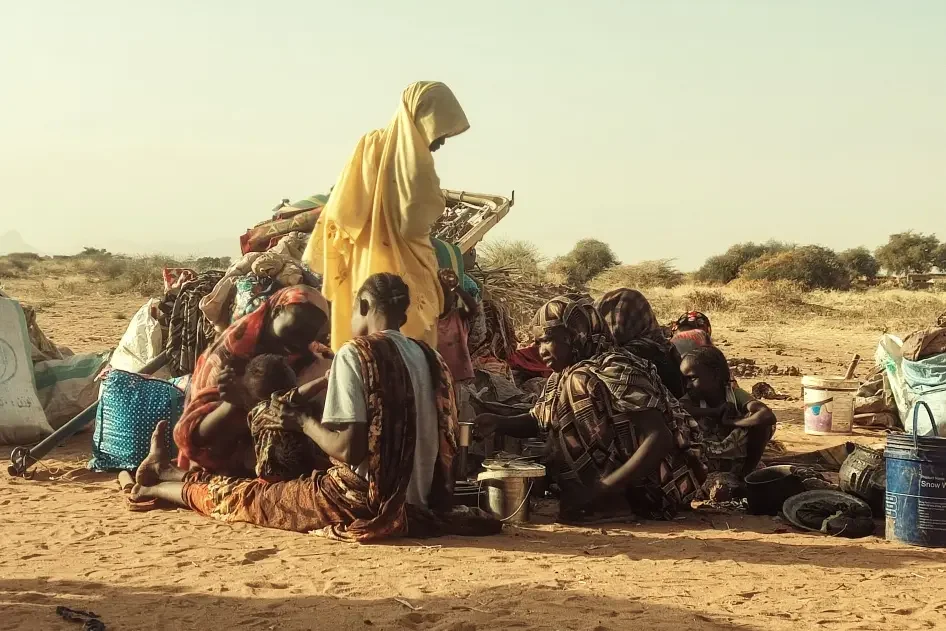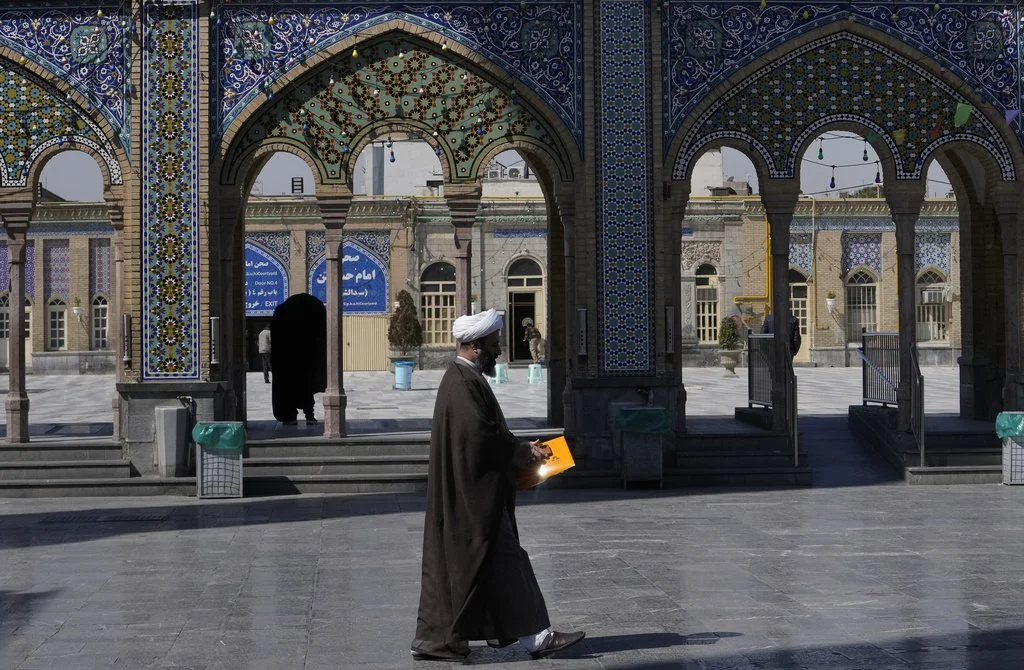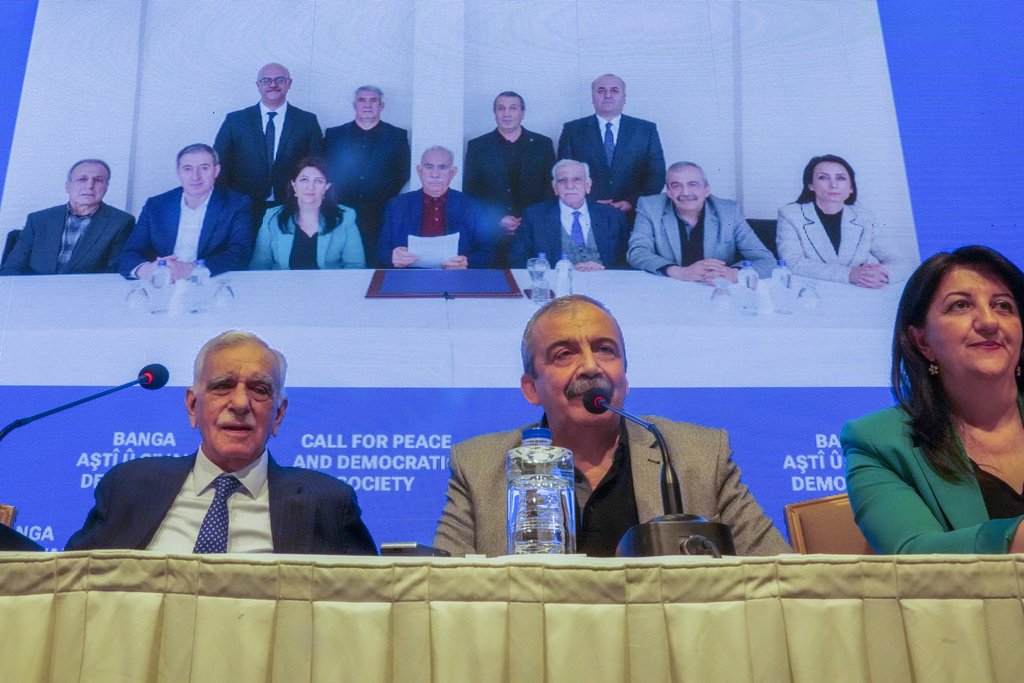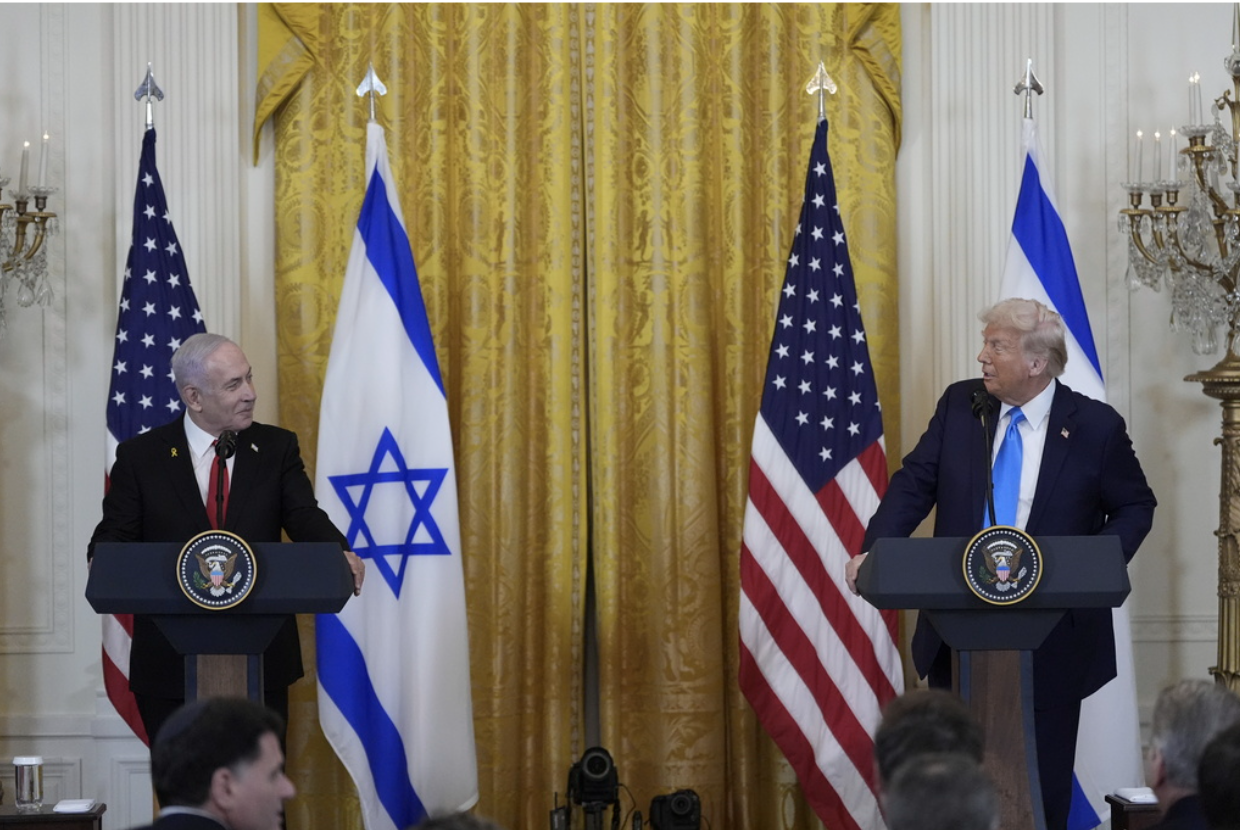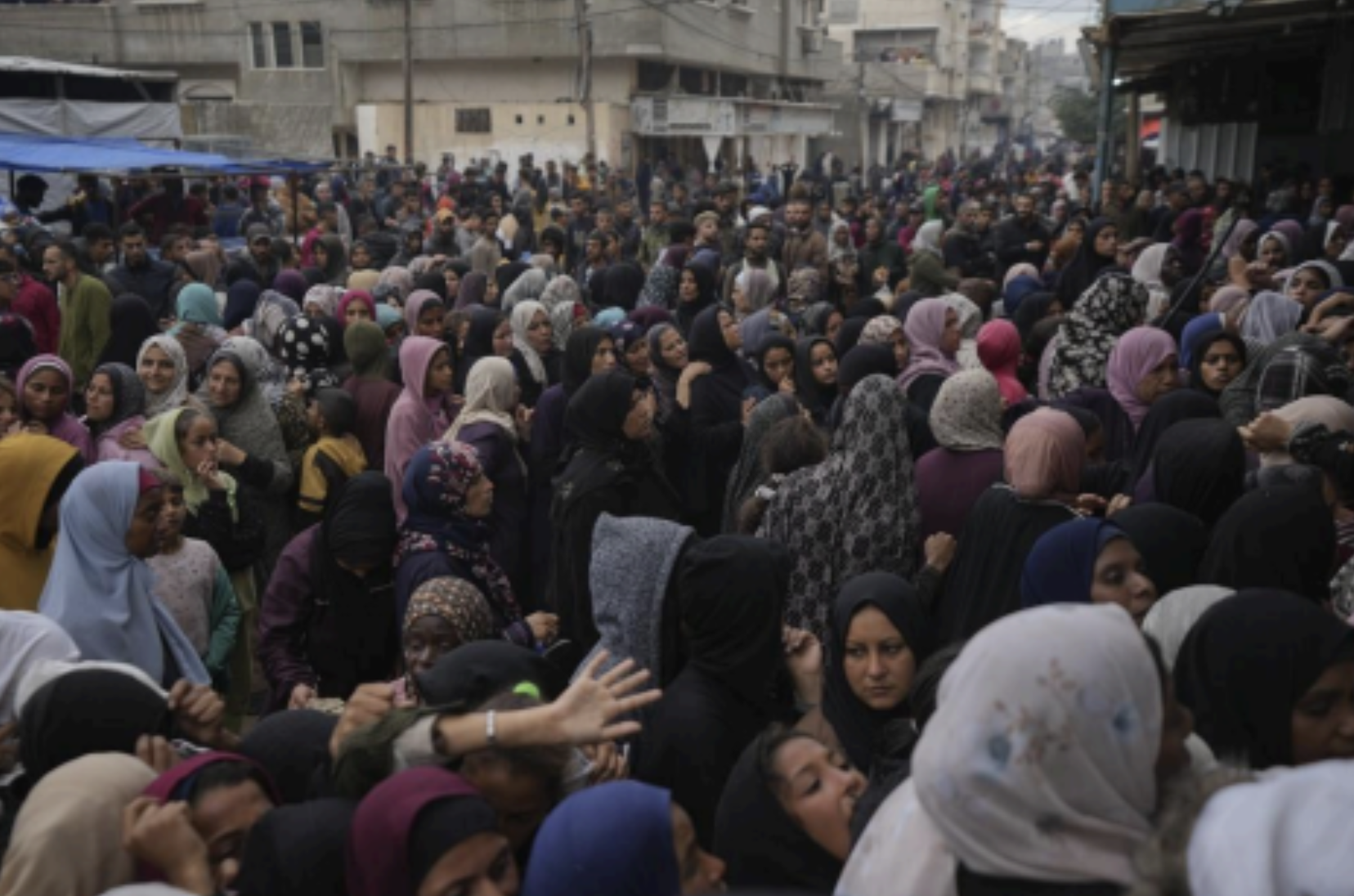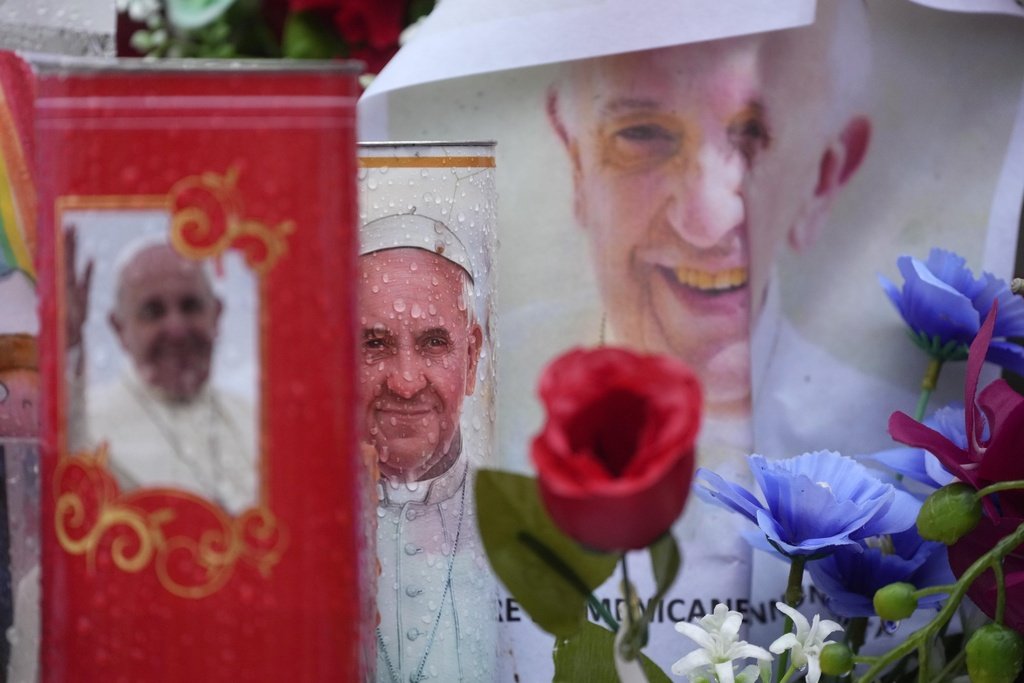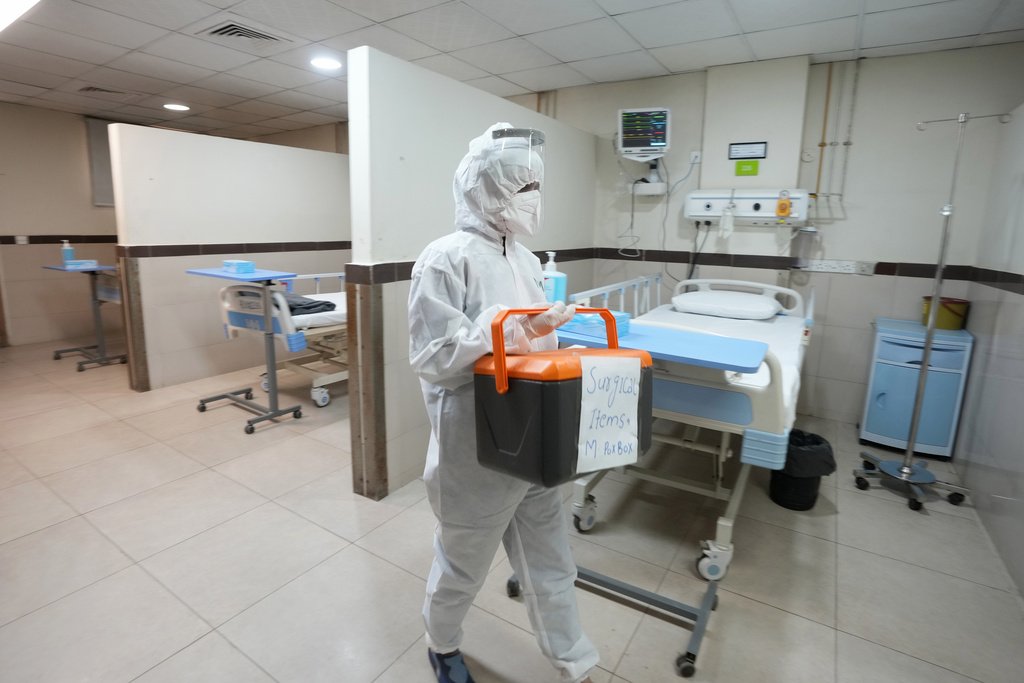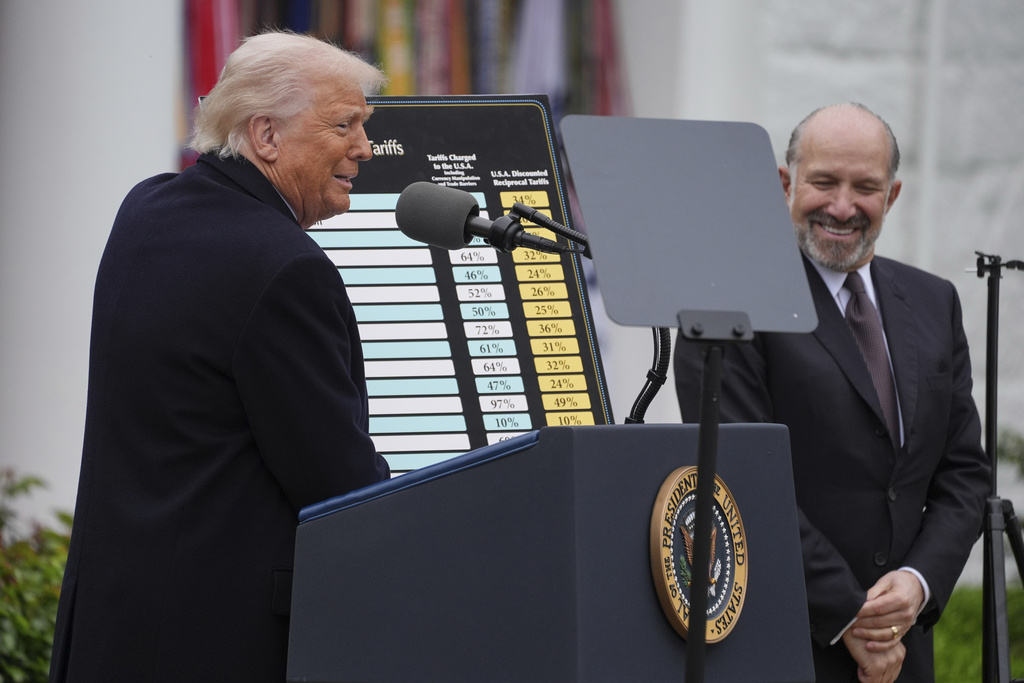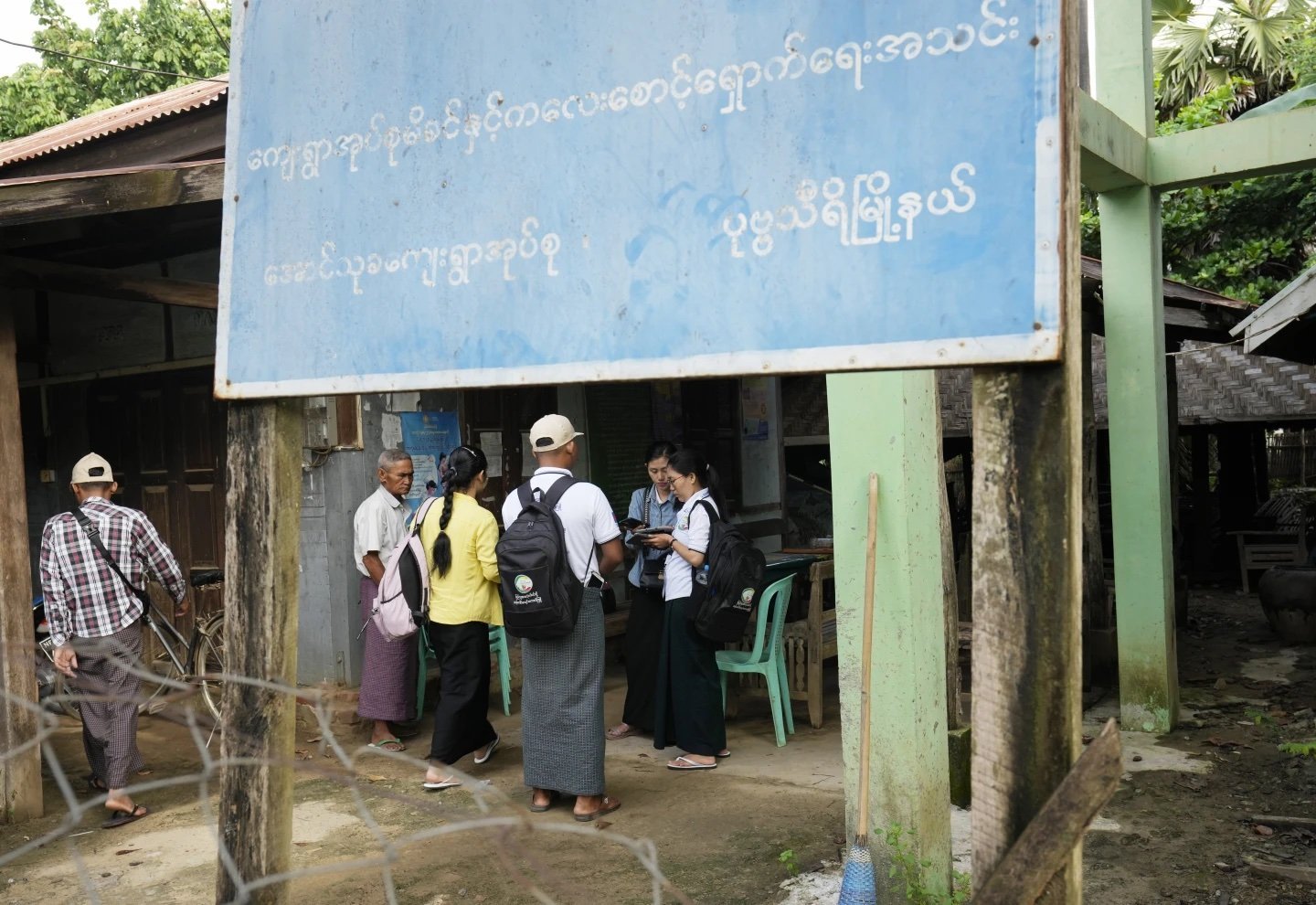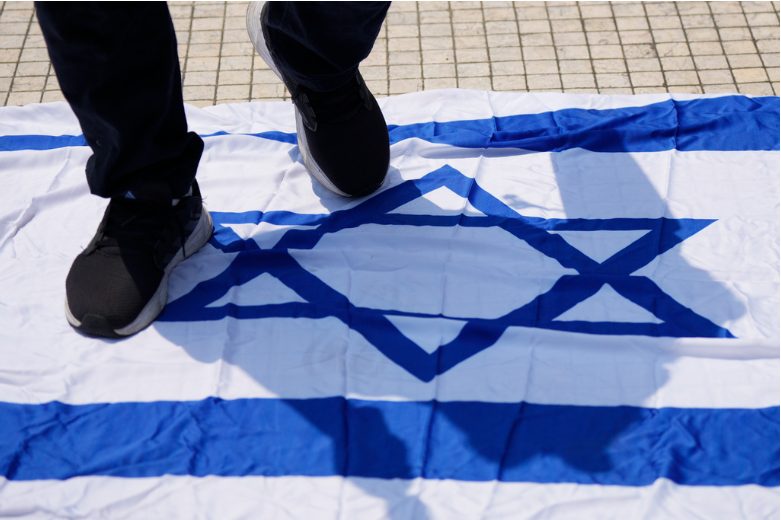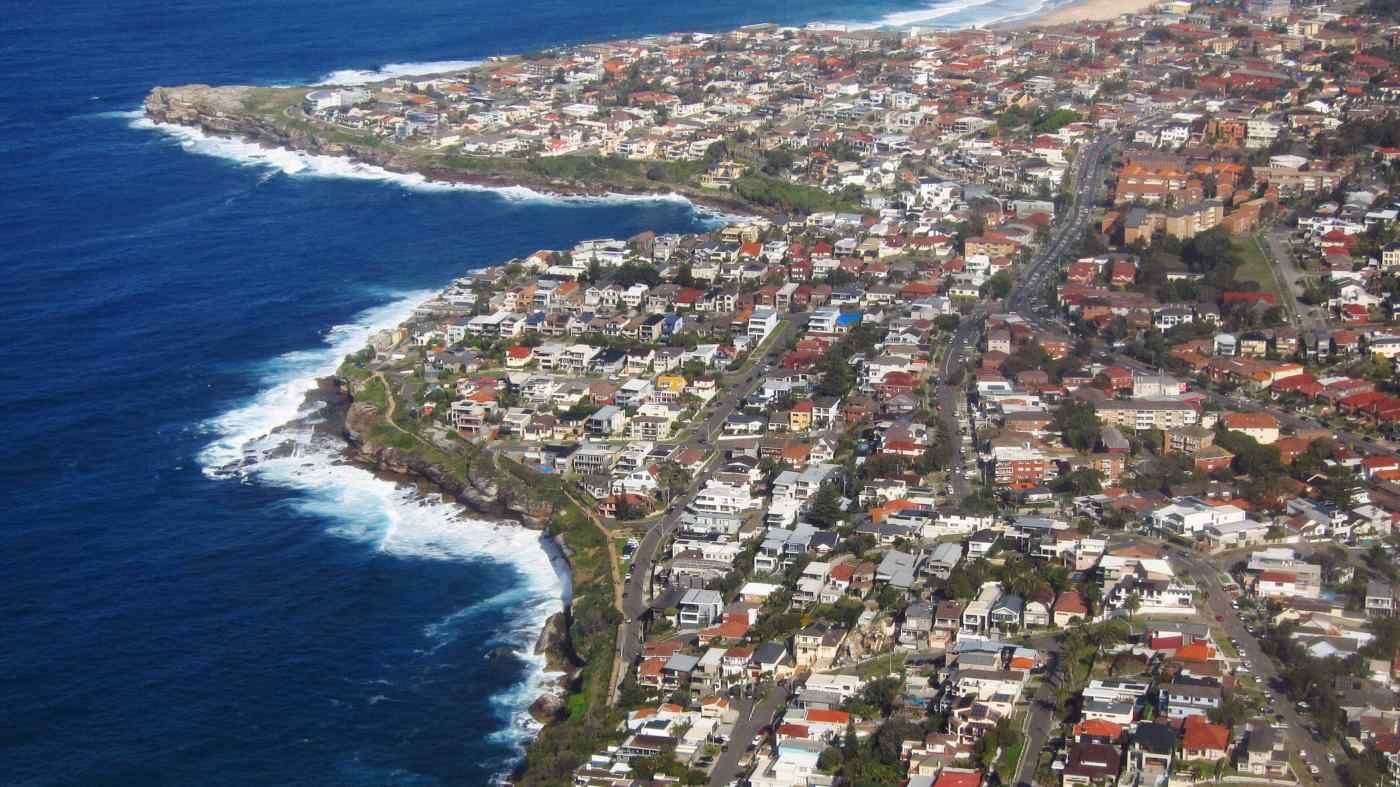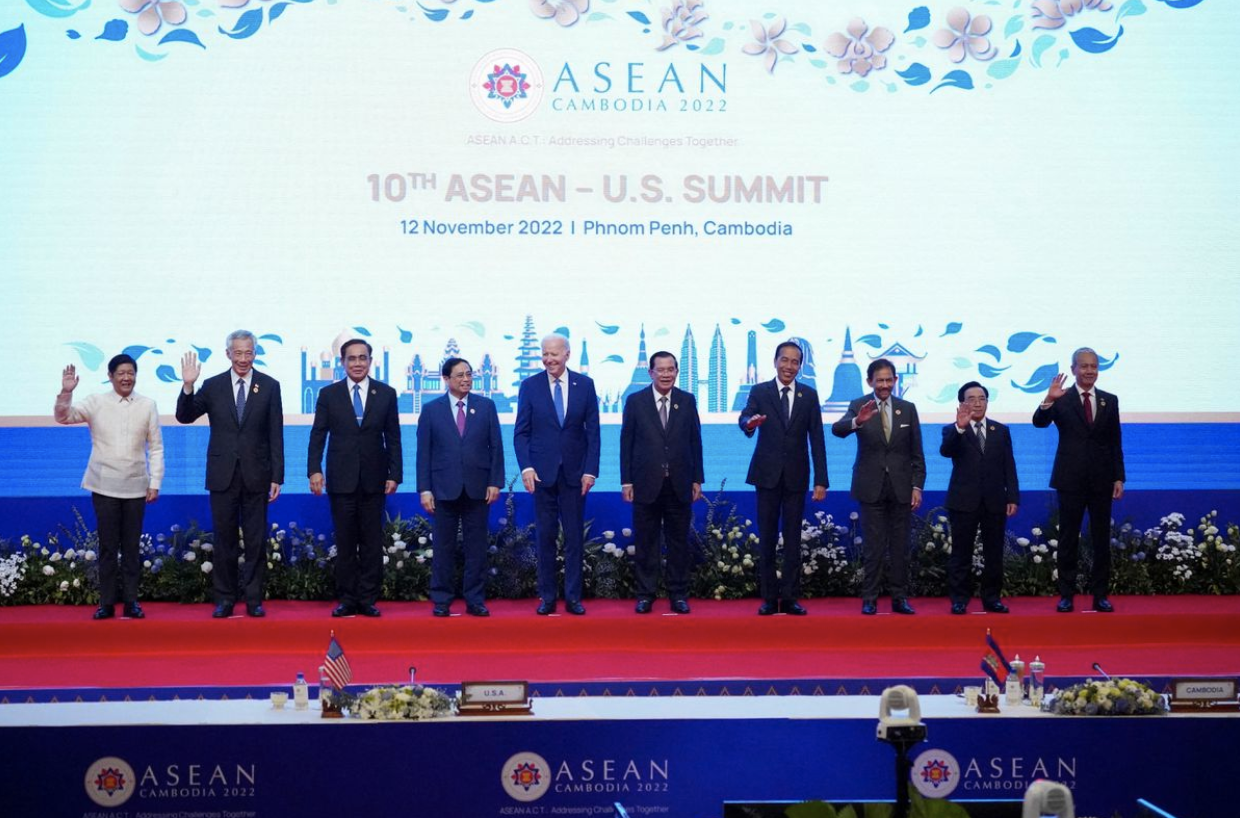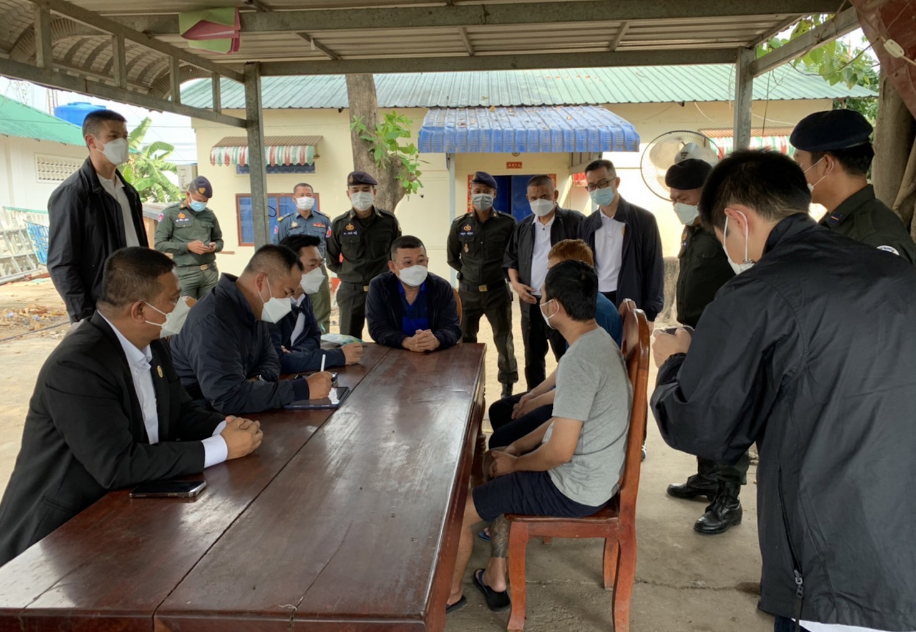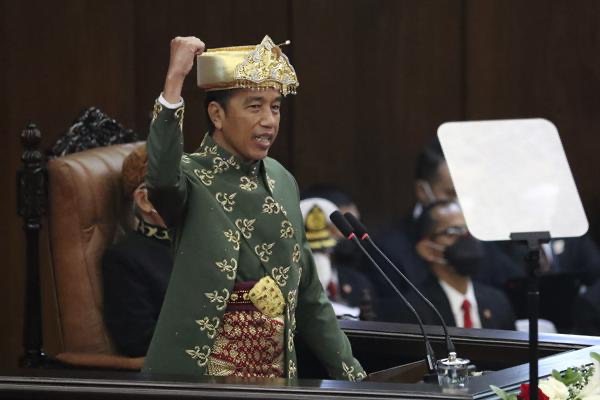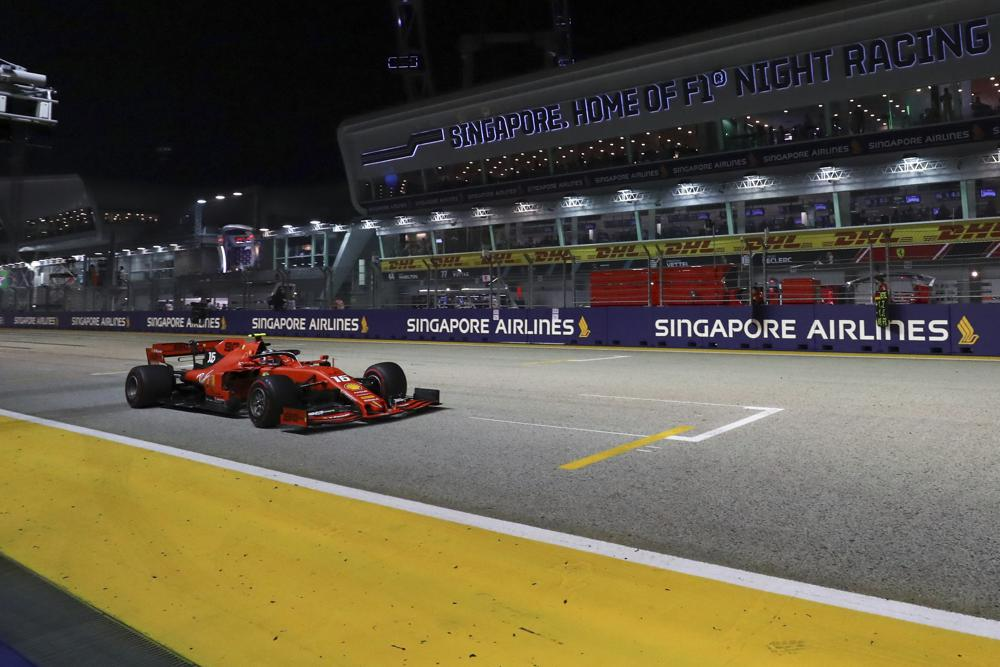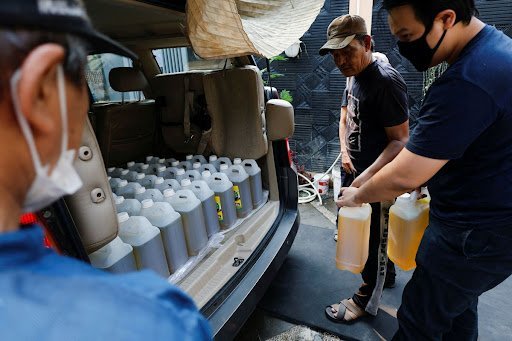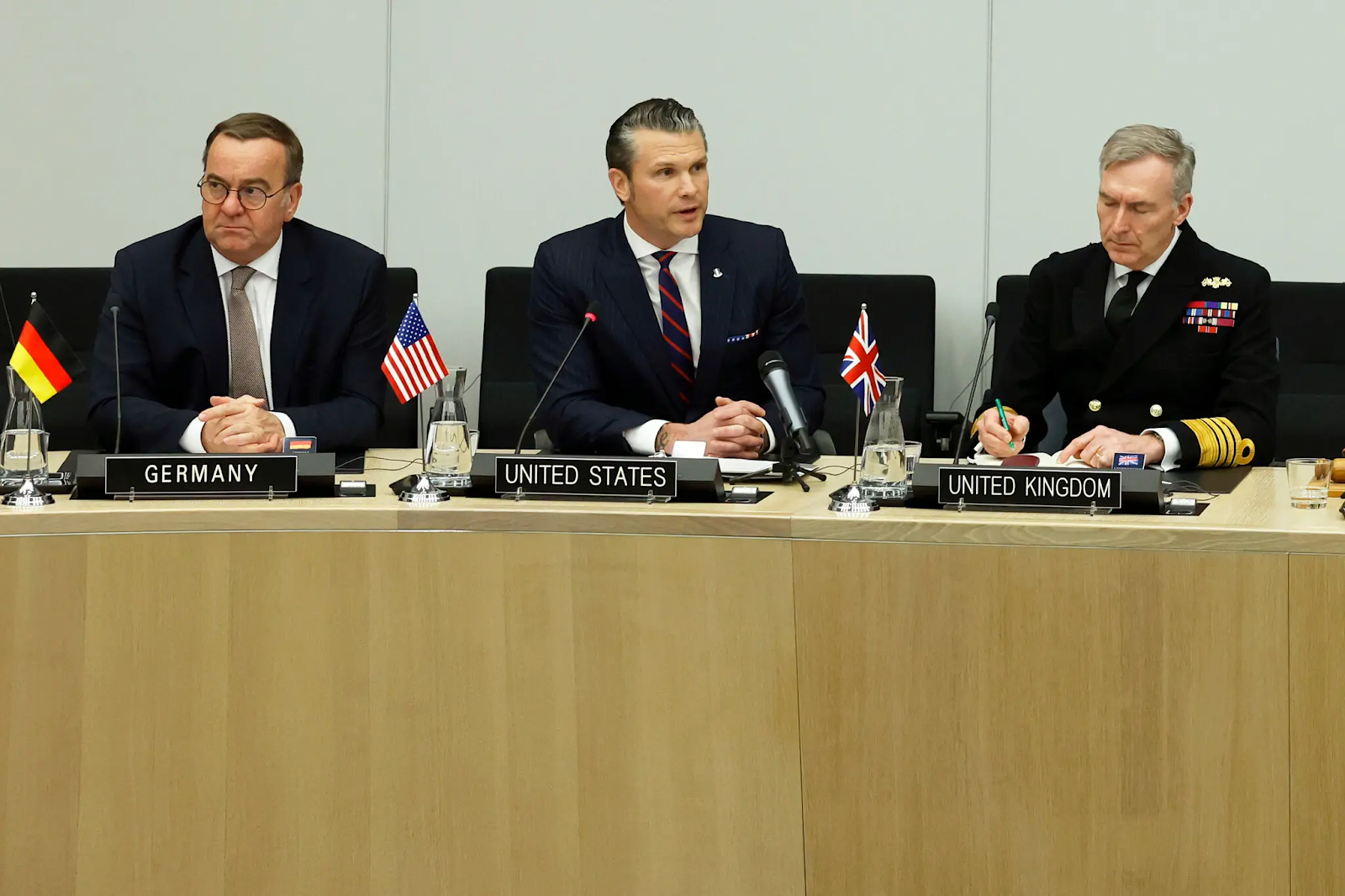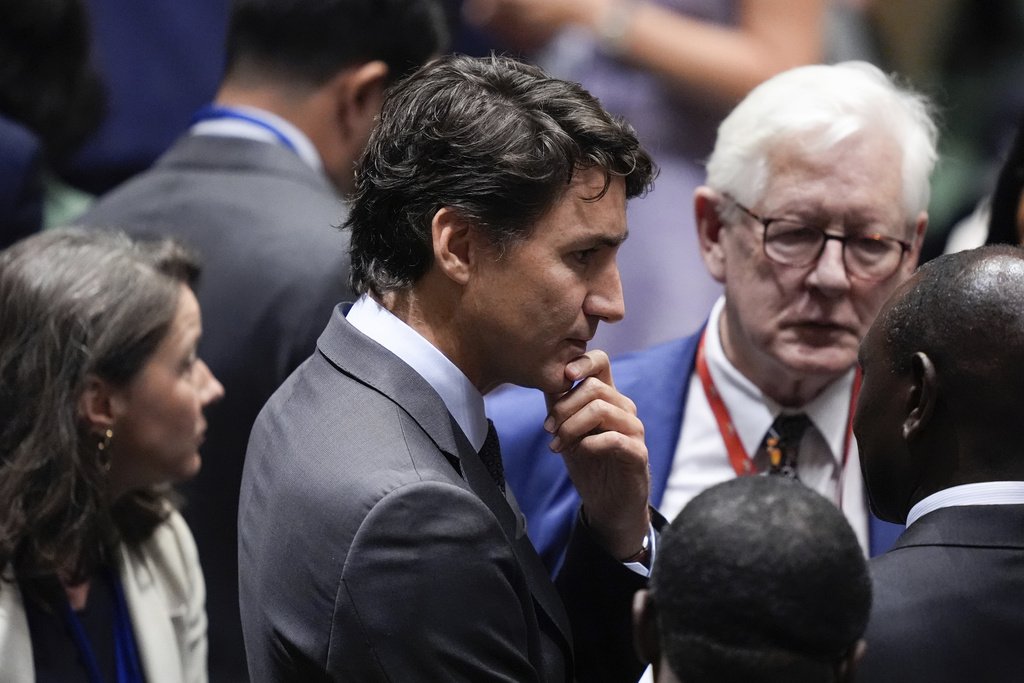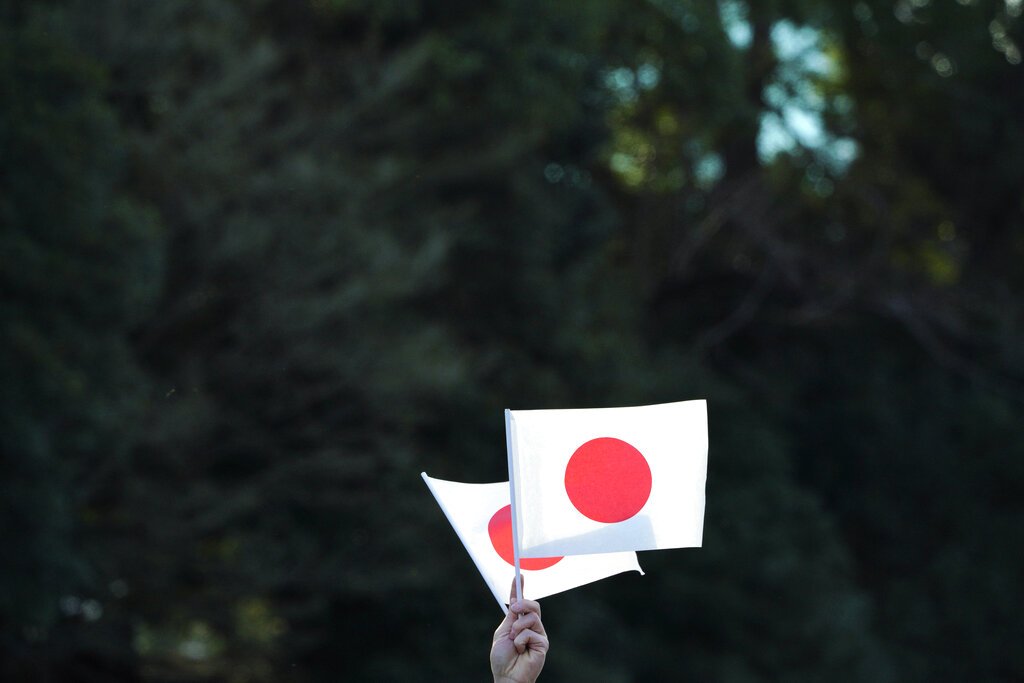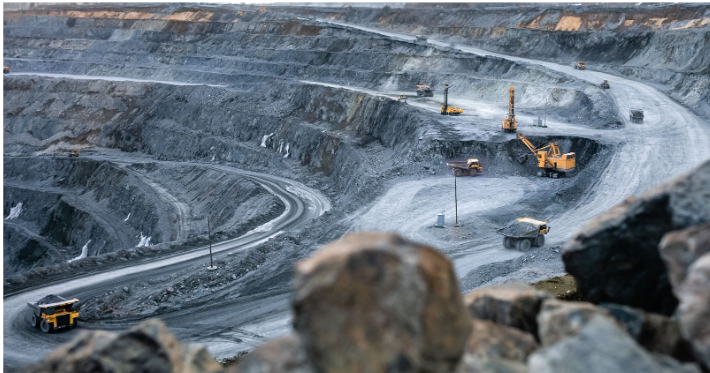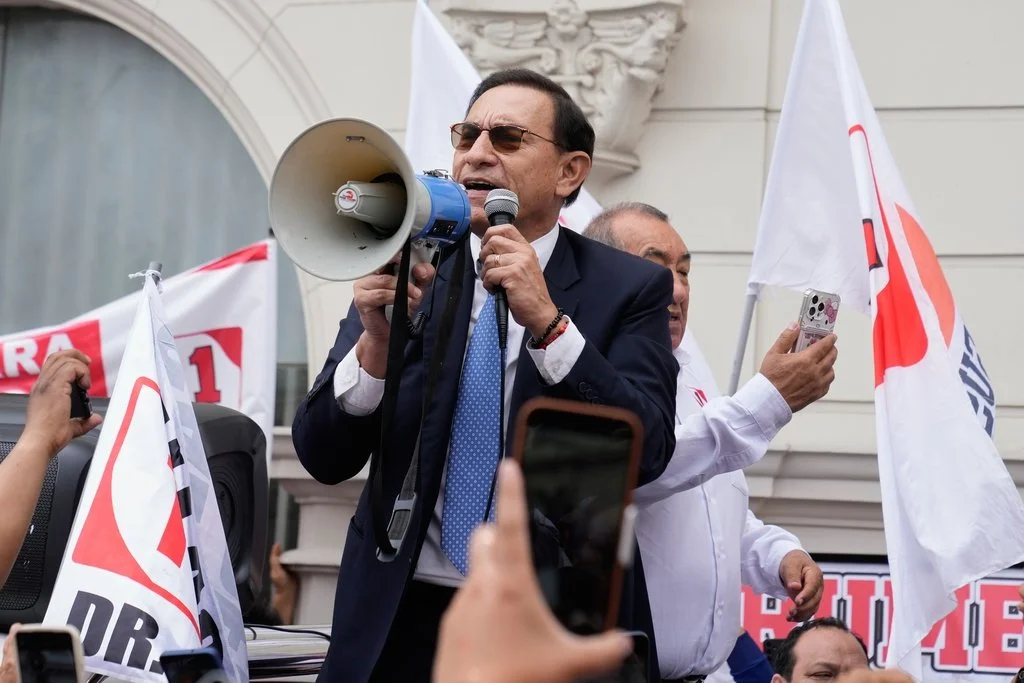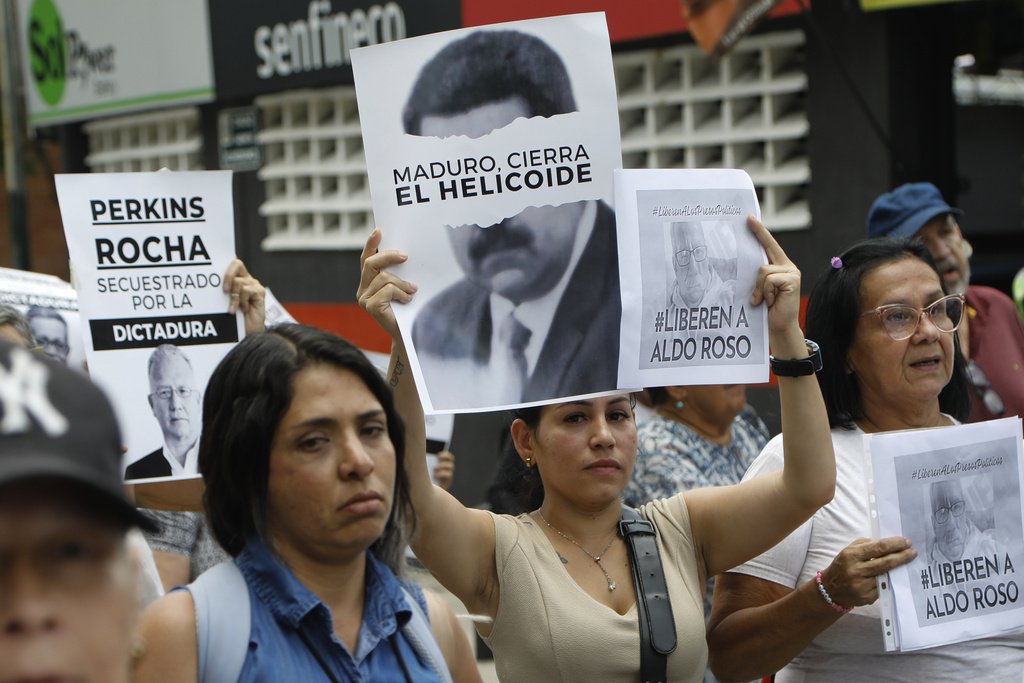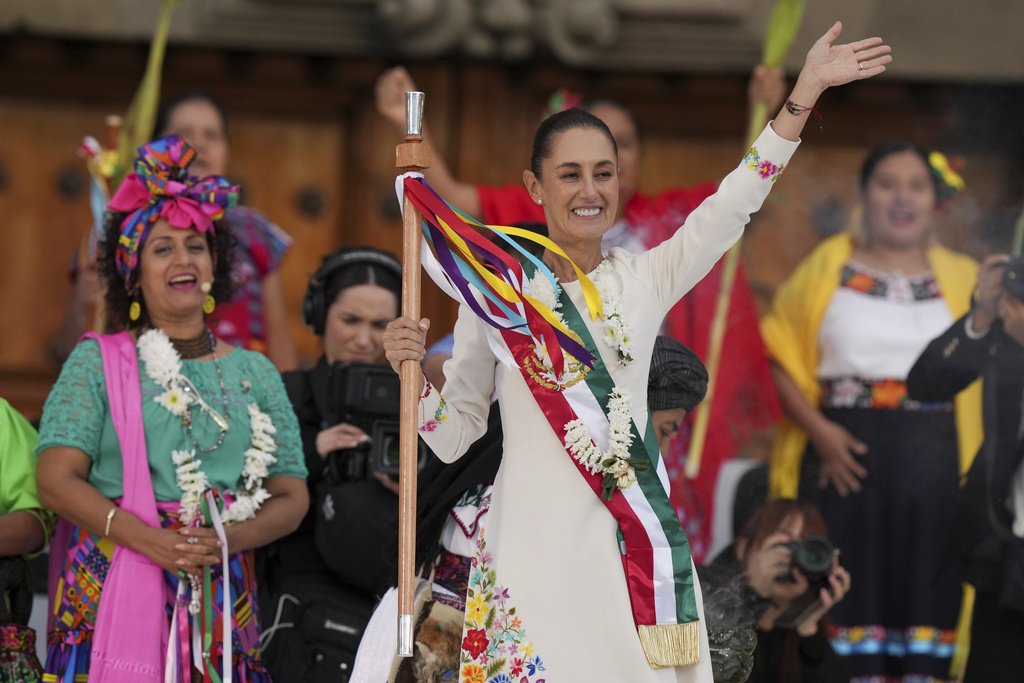India’s border dispute with China illustrates how New Delhi prioritizes security and sovereignty over economic competition, particularly before the Galwan Valley clash. As further tensions arise, India’s foreign policy stabilizes diplomacy and defence.
India has delayed announcing its 2035 emissions target even as the COP30 progresses, making it one of the only G20 nations in the conference yet to outline this goal. Many now speculate the government will place a greater emphasis on multilateralism and focus on existing pledges.
As New Delhi and Washington navigate trade tensions, the balance between energy sufficiency and international alliances remains unpredictable. The negotiations could pronounce India’s standing between the East and West.
Prominent Pakistani journalist Arshad Sharif was murdered on the outskirts of Nairobi at the hands of the Kenyan police on Sunday, Oct. 23. Sharif had sought refuge in Kenya after he left Pakistan in August, fearing for his life.
During their Migration and Development Brief, the World Bank stated that India is expected to receive a record $100 billion in remittance in 2022, the first time a single country has reached this number. This is a significant increase compared to the $89.4 billion made from India’s remittance rate last year.
Nepal registered the nation’s first legal same-sex marriage between citizens of different countries on Oct. 6, 2024.
Last weekend, US President Joe Biden met with Indian Prime Minister Narendra Modi and other leaders from Japan and Australia to discuss the future of one of his key foreign policy platforms: the Quad Partnership.
On Sept. 25, the IMF reached a deal with Pakistan, securing the nation the seven billion dollars needed to pay its debts and stay afloat. The news was uplifting to the country that has an external debt of $130 billion, with $90 billion due over the next three years. The International Monetary Fund, the financial wing of the United Nations, has continuously lent out money over recent years to Pakistan as the nation struggles to pay back interest on decades-old debt. Pakistan has requested a staggering twenty-three bailouts. This request comes as the nation teetered on being unable to pay back its interest obligations, in effect defaulting.
On August 29th, India unveiled a new missile submarine with possible nuclear capabilities in an effort to compete and assert power against China in light of their ongoing dispute.
This past Thursday, September 19th, in Pakistan two individuals were killed over accusations of Blasphemy. The first, Dr. Kanbhar, was shot dead by police after a mob moved to attack him.
Women’s rights in Afghanistan are in a state of deterioration, amplified by tensions from the Taliban who regained control of the state in August 2021. Throughout November, four prominent women’s rights activists were arbitrarily detained by the Taliban. Hundreds of women’s rights activists, fighting for the right to allow girls to receive an education, are now in the Taliban’s custody.
The Indian delegation to the The United Nations Conference of Parties (COP) pledged to redouble efforts moving away from fossil fuels to renewable energy, among many other commitments, led by the Indian Prime Minister Narendra Modi. The conference, the only multilateral decision-making body on climate change, is taking place in Dubai, United Arab Emirates from November 30 to December 12, 2023.
In late November, Forbes Magazine used satellite imagery to uncover four previously undisclosed state-run Bitcoin mining facilities in Bhutan. The locations include Dochula Pass, a sacred region home to 108 shrines for fallen Bhutanese soldiers, the town of Trongsa, the Dagana district, and Education City – a failed megaproject designed to create an educational hub in the region.
On Tuesday, rescuers freed 41 construction workers trapped under a collapsed tunnel in the Himalayan state of Uttarakhand, after spending 17 days under rubble. The laborers, all migrant workers from poorer states in India, quickly reunited with their families after their release.
On Nov 11, the Pakistan Navy and the Chinese People’s Liberation Army Navy (PLAN) launched the third edition of their “Sea Guardian” maritime drills. The exercise comes as a move to strengthen Sino-Pakistani ties and enhance strategic capabilities in jointly safeguarding the oceans.
This past Monday, the Nepali government announced a ban on TikTok, the video-sharing app that has accrued over 1 billion users globally. Officials pointed to the prevalent hate content on the app as the main justification for the ban.
On Friday, Nov. 3, a powerful earthquake struck Nepal, a small landlocked nation that lies along the south of the Himalayas. The earthquake is to have caused 150 casualties plus hundreds of injuries, with the possibility that these numbers may rise as aftershocks continue to rumble through the region.
On Tuesday, the state legislature elections within the Indian states of Mizoram and Chhattisgarh began. Elections in the states of Telangana, Madhya Pradesh, and Rajasthan are set to begin later this week.
On Oct.25, an advanced Chinese research vessel, Shin Yan 6, docked on the port of Colombo amidst India’s fears of China extending its influence over to the Indian subcontinent on an unprecedented scale.
On Oct. 31, suspected insurgents ambushed a group of police commandos sent to the Indian state of Manipur, resulting in a shootout. The situation ended when the Assam Rifles successfully rescued the police from the situation.
On Oct. 3, the Pakistani government announced that all unregistered Afghan refugees will be forced to leave the country by November 2023. Specifically, Pakistan’s Interior Minister Sarfraz Bugti announced the crackdown order on “illegal immigrants.”
The Indian Embassy in Ottawa, Canada announced the resumption of visa services on Oct. 25 in Canada, after a diplomatic fallout between the two countries over the last couple of months.
On Oct. 3, at around 6:30 AM, Indian police staged several raids on the office and private homes of employees at NewsClick – an English-language independent news outlet focusing on “progressive movements.”
On October 17, 2023 in New Delhi, the Indian Supreme Court reached the verdict of denying the recognition of same-sex marriages. Prime Minister Narendra Modi’s nationalist Bharatiya Janata Party (BJP) administration previously opposed petitions to the court because they view the ideology of same-sex marriage as incompatible with the “Indian family unit concept” of a husband, wife, and children.
The Indian government is showcasing a diplomatic leaning towards Israel, considering the strong ties between the two countries and the strategic partnerships between them. A key factor is also the close friendship that the two prime ministers share. Indian Prime Minister Narendra Modi refrained from taking an absolute neutral position in the Israel-Palestine conflict, unlike his predecessors.
The Indian government drastically increased its infrastructure spending on public goods, such as roads, railways and bridges, for the foreseeable future.
Bangladesh and Russia agreed to conduct an ongoing nuclear power plant deal entirely in Chinese Yuan.
India is about to surpass China’s population given UN projections analyzed using fertility levels.
The Supreme Court of India is currently hearing a petition to legalize same-sex marriages.
Recent spikes of inflation and damaged crops have resulted in soaring food prices in Pakistan during the Islamic holy month of Ramadan
On October 26, 2025, the paramilitary Rapid Support Forces (RSF) captured El Fasher, the Sudanese Armed Forces' (SAF) final major stronghold in the western Darfur region. The fighting has devastated the country since 2023: displacing more than 14 million people, killing more than 40,000, and pushing more than 24.6 million people to the brink of famine.
After 13 years of civil conflict, the fall of former President Bashar al-Assad gave Syrians a sense of hope for stability. However, recent attacks led by Assad loyalists threaten the potential to eliminate division within the country.
The steady uptick in Iranian human rights violations has caused public scrutiny and dissent, of which has existed in Iran for decades. However, one must ask, how many more executions have to happen before the public dissatisfaction grows large enough to overthrow the Islamic Republic?
In 2018, the Trump administration withdrew from the United Nations Human Rights Council. US Ambassador to the United Nations (UN), Nikki R. Haley, highlighted at the June General Assembly that this decision was due to the growing concern that the Human Rights Council was driven by “political bias” rather than humanitarian rights due to the “disproportionate focus and unending hostility towards Israel.”
The Syrian Democratic Forces merged with the transitional government amid sectarian violence, as President al-Sharaa signed a five-year interim constitution.
Abdullah Öcalan, the leader and founder of the Kurdistan’s Worker Party (PKK), issued a statement from prison calling for the group to lay down their arms and completely dissolve itself. Öcalan’s comments were read at a news conference in Istanbul by Kurdish lawmakers, who met with the leader earlier. The call to dissolve addresses all branches of the primarily Türkiye-based militant group, including its offshoots in Syria and parts of Iraq and Iran.
The international community remains silent when it comes to Israel’s violations of international law in Syria. The Golan Heights occupation and annexation, as well as the destruction of Syria’s defense capabilities render Syria weak and vulnerable during this time in its governmen’s transition. This elephant in the room has been conveniently ignored at international meetings regarding Syria’s future under HTS. How much longer will Israel continue to evade international law in Syria?
Israel’s refusal to withdraw from the Philadelphi Corridor threatens to derail ceasefire negotiations, as humanitarian conditions in Gaza worsen and talks over an extended truce remain stalled.
Unlike other countries in the MENA region, Morocco is not a gas-producing nor oil-producing country. The North African nation heavily relies on fossil fuel imports to provide energy to its population, with 90 percent of the country’s energy needs for both commercial and residential use met through imported natural gas and other fossil fuels, according to the World Bank.
A dispute over prisoner releases threatens to unravel the fragile ceasefire between Israel and Hamas, as both sides exchange accusations over hostage mistreatment and ceasefire violations.
As the Arab League Summit inches closer, Arab leaders are looking to gather to discuss alternative solutions to Trump’s plan to relocate Palestinians out of Gaza.
Upon receiving her presidential nomination at the Democratic National Convention, Vice President Kamala Harris said she and President Joe Biden were working “around the clock” to negotiate a ceasefire deal between Hamas and Israel. Harris has since made dozens of statements claiming that the administration has been “dedicate[d] to ending this war and bringing the hostages home.”
These statements are misleading.
A new decree from the Taliban is set to ban women from pursuing education in midwifery and nursing, with some students having already been barred from classes.
The endless cycle of conflict in the Middle East demands a shift from moral debates to pragmatic solutions — a practical, incentive-driven framework may be the only path forward.
The Israeli Information Center for Human Rights in the Occupied Territories – has been documenting, researching and publishing data, testimonies, video evidence and reports on human rights violations in Israel-occupied territories since its founding in 1989. In August 2024, the organization released an 118-page report accusing the Israeli government of carrying out systematic abuse and torture of Palestinian detainees, particularly in the aftermath of the Hamas attack on October 7, 2023.
Lebanese militant group Hezbollah recently announced the election of 71-year-old Naim Qassem — Hezbollah’s long-time deputy secretary general — as the group’s new chief leader last week.
On Oct. 26, Israeli missiles struck military bases in three Iranian provinces. To further prevent Iraq and Syria from intercepting the attacks, Israel’s missiles also targeted their air defense systems. Four Iranian soldiers were killed in midst of the strikes.
Discussions of a transition period for the anti-ISIS US-led coalition in Iraq have been underway. If given the green light, this anticipated transitional period would introduce reductions in the 2,500 troops stationed in Iraq between September 2025 and the winter of 2026.
US investigators are inspecting how a pair of highly classified intelligence documents leaked online. The two documents that surfaced on the messaging platform Telegram last Friday purportedly detail a US assessment of Israel's plans to strike Iran.
On Oct. 16, 2024, Yahya Sinwar, the leader of the Islamic Resistance Movement (Hamas), was killed by the Israeli military.
Israel has targeted United Nations (UN) peacekeepers in Southern Lebanon in recent attacks, injuring several and forcing entry into UN bases.
On Tuesday, October 1, Iran launched around 180 missiles into Israel. These strikes are a direct response to escalations between Israel, Hamas and Hezbollah, one of Iran’s regional proxies. Iran stated that the missile attacks were a result of a string of recent killings by Israel, particularly Hezbollah leader Hassan Nasrallah in Beirut and Hamas leader Ismail Haniyeh in Tehran this July.
Conflict in the Middle East has thrust the United States into a diplomatic and strategic high-wire act that is becoming increasingly central to the 2024 presidential election.
On the one-year anniversary of the attacks on October 7, 2023, the ongoing conflict in Gaza continues to shape political dynamics and international advocacy.
On Oct. 13, Turkish authorities detained 269 individuals suspected to be members of the Kurdistan Workers’ Party (PKK) across Diyarbakır province in Türkiye.
Speculation of attacks on Iranian oil supplies have caused global oil prices to spike. Fears of disrupted supply have led to sharp price fluctuations, raising concerns of a direct impact on supply and consumer prices.
Tensions have skyrocketed after Hezbollah leader Hassan Nasrallah was killed in an Israeli airstrike last week. Hezbollah and its allies vow retaliation, raising fears of a wider conflict as sides exchange strikes, threatening regional stability.
As of early October 2024, the United States had approximately 40,000 US military troops stationed throughout the Middle East, with thousands more set to be deployed. This increased US military presence in the region showcases the seriousness of rising tensions from the Israel-Palestine conflict and signals US intentions to become more involve
Tensions between Israel and Iran finally reached a tipping point on Tuesday Oct. 1, when the latter initiated a missile attack into Israeli territory. There has only been one confirmed death and a handful of minor injuries reported.
On the one-year anniversary of the attacks on October 7, 2023, the ongoing conflict in Gaza continues to shape political dynamics and international advocacy.
-
Tensions between China and Taiwan have reached alarming heights as a surge in military activity from Beijing heightens the possibility of warfare. A key instigator is the 2024 election of Taiwanese President Lai Ching-te, who describes himself as a “pragmatic worker for Taiwan independence.” Lai’s election coincides with an exacerbation in Chinese aggression, including a 300 percent increase in military flights around Taiwan since May and a major October drill involving Chinese army, navy, air, and rocket forces that encircled the island. Most recently, in early November, over 35 Chinese military aircraft, including nuclear-capable H-6 bombers and drones, were detected flying to the south of Taiwan for two consecutive days.
-
After weeks of tied polls, on Nov. 5 Donald Trump won a decisive victory in the United States presidential election. Though Trump has not been forthcoming about specific plans for European relations, he has made it clear that he will not keep the status quo.
The UK Government introduced its new plans to build a small nuclear plant in Northern Wales, which has angered the US, who had planned to build a reactor in the same location. British Prime Minister, Keir Starmer, has previously struck nuclear deals with US President, Donald Trump, and therefore these plans call into question the role of the US in the UK energy sector going forward.
The EU has strengthened its stance on the Russia-Ukraine conflict, imposing new sanctions on Russian trade, and introducing changes to funding and a road-map of future defences against Russian attack. These plans pose a threat to the Russian economy and present an attempt to pressure Russia into peace negotiations.
In August 2025, Germany’s center-left and far-right coalition introduced a bill that would significantly increase military spending.
Following a complex legal challenge last fall, Italy has now moved forward with its contested asylum policy by transferring forty migrants to Albania. This marks an unprecedented moment in European migration policy, as the first documented case of asylum seekers being sent to a third country with no direct connection to their origin or migration route.
President Macron of France has played an important role in European politics as the United States have created worry over the future of their alliance.
Marine Le Pen, the leader of a far-right political party in France, has been accused of embezzling millions of dollars from the French government. Her conviction comes at a time of transition for the nation.
Meeting Trump's proposed 5% GDP target for NATO defense spending could cripple Europe's social safety net, forcing painful choices between security and social welfare.
A recent confidence vote has removed the incumbent Prime Minister Montenegro out of office, prompting another election after a series of complications with lawmakers.
The growing wave of anti-government protests in Serbia illustrates a society pushing back against decades of stagnation. This civil unrest not only seeks immediate reforms but also raises critical questions about the country’s EU integration prospects.
On March 2nd, European leaders convened in London to coordinate a response following the escalating tensions in the Ukraine-Russia War. The summit's discussions on military aid and strategic cooperation underscore a pivotal moment in European security policy.
As President Trump warns to revoke defense for Europe, President Macron assembles fellow European legislators to discuss their changing future.
Pope Francis II was hospitalized in Rome due to a respiratory tract infection. This affects not only the Catholic Church, but has implications in the larger global geopolitical context as well.
Last week, Estonia, Latvia, and Lithuania completed their de-synchronisation from Russia's electricity grid, a move planned since 2007 but significantly accelerated by Russia's full-scale invasion of Ukraine.
As Syria stands on the brink of a new era, the European Union faces pivotal decisions that could redefine its role in the Middle East.
Donald Trump's return to power marks a pivotal moment for the European Union (EU). With the European Commission focusing on critical areas like trade, climate, and migration, the EU must brace for the challenges a second Trump term will bring.
The German ruling coalition, led by Olaf Scholz, has collapsed following the firing of the finance minister, Christian Lindler, last week.
The United Kingdom’s (UK) defense spending and international security commitments are attracting much attention as the government balances global threats and budget conflicts.
As BRICS continues to assert its influence, the European Union (EU) must carefully evaluate the implications of its growth. The summit's outcomes hold particular relevance for the EU, given the bloc's strategic interests and increasing involvement in global affairs, including the ongoing conflict in Ukraine. How is BRICS going to impact the EU's strategic interests?
As of Oct. 22, 2024, the United Kingdom and Germany have signed a significant defense pact to reinforce military collaboration in response to the growing threat posed by Russia. Such an agreement highlights the strategic importance of their alliance as both powers seek to confront escalating security challenges in Europe.
On Friday 25 Oct French authorities revealed they’d charged seven individuals in connection with the cyberbullying of Thomas Jolly, the creative director for the Paris 2024 Olympics.
On Sunday, October 20th, Moldova held a referendum vote on joining the European Union (EU), alongside its planned presidential elections.
Italy's plan to process migrants in Albania faces legal challenges after a Rome court ruled the return of migrants to their countries unsafe and unlawful. While Prime Minister Giorgia Meloni defends the deal as a European model, critics raise concerns about human rights violations and tensions between national policies and European law.
After the deadliest Israeli attack on Hezbollah since 2006, UK ministers, headed by Prime Minister Keir Starmer, urge British nationals to “leave Lebanon immediately”.
The trial of French researcher Laurent Vinatier has emerged as a significant point of contention in the decaying relationship between France and Russia. Vinatier, who specializes in post-Soviet studies, was arrested in March 2024 on espionage charges.
Three years following the Taliban’s siege of Kabul, a new European Union ruling passed on October 4th, 2024 states that countries only require the gender and nationality of female Afghan refugees to grant asylum.
On Sept. 29, Austria's far-right Freedom Party (FPÖ) achieved an unprecedented victory by winning the national parliamentary election — its first major success since World War II.
India has reported a new case of Monkeypox (Mpox) in Kerala's Malappuram district. According to CNN, this case is among the new variants of Monkeypox, called clade 1b, which causes more severe disease than the original clade 2b variant that was present in 2022.
In a joint statement on Sept. 29, 2023, U.S. Secretary of State Antony Blinken and U.K. Foreign Secretary David Lammy reaffirmed their countries commitment to Israel’s security while simultaneously calling for the promotion of peace and security in the Middle East.
Mark Rutte officially took office as Secretary General of NATO on Oct. 1, 2024, succeeding Jens Stoltenberg at the organization’s headquarters in Brussels.
The ongoing tension between Hungary and the European Union (EU) regarding immigration laws has reached a critical juncture. Hungary has faced increasing scrutiny for its inhumane treatment of migrants and the unlawful detention of asylum seekers.
Countries around the world scramble to deal with global crisis linking cybercrime syndicates, human trafficking, and complicit governments.
As numerous typhoons have entered the islands, the government has sought to support affected areas, attempting to move past previous incidents of negligence and embezzlement.
Program designed to combat stunting and malnutrition has sent children to the hospital as critics blame rushed timelines, poor implementation, and misplaced priorities
The deal, which aims to increase supply of rare earths, strengthens Australia’s relationship with the United States but may produce complications with China.
The “Liberation Day” tariffs imposed by the US mark a major shift toward protectionism, disrupting global trade and disproportionately impacting Southeast Asia and Oceania. As economic uncertainty grows, joint responses to preserve rules-based trade and regional stability are being explored.
Duterte’s arrest by the ICC marks a pivotal moment in the fight for justice, but the global drug trade remains an evolving crisis. However, international cooperation is needed to dismantle drug networks and hold the true perpetrators accountable.
Indonesia becomes the first ASEAN nation to join BRICS, strengthening its global economic ties while balancing its non-alignment policy. This move positions Indonesia for expanded trade, infrastructure growth, and deeper collaboration with emerging economies.
Both the military and those fighting for democracy and regional autonomy have relied on illegal profits as the easiest way to fuel their war efforts.
The Association of Southeast Asian Nations (ASEAN) summit began on Wednesday Oct. 9 in Vientiane, Laos with a major focus placed on tackling a critical issue within the region: the worsening civil war in Myanmar.
Tensions between Israel and Iran finally reached a tipping point on Tuesday Oct. 1, when the latter initiated a missile attack into Israeli territory. There has only been one confirmed death and a handful of minor injuries reported.
Penny Wong, Minister for Foreign Affairs of the Commonwealth of Australia, has recently urged Australian citizens in Lebanon to leave while they still can. An estimated 15,000 Australians remain in Lebanon after Israel initiated a ground operation in Hezbollah.
On Tuesday, Sep. 24, 2024, Thailand’s landmark marriage equality bill was approved by King Maha Vajiralongkorn, making the nation the first in Southeast Asia to legalize same-sex marriage.
On Sept. 18, Indonesia’s Central Bank (Bank Indonesia) announced a decrease in their interest rate from 25 basis points (0.25%) to 6%, in a move that came as a surprise to most experts.
In 2022, New Zealand was lauded for passing the world's first generational smoking ban. In a surprising turn of events, New Zealand has backtracked its course on the ban, announcing a disappointing reversal that has drawn criticism from public health officials.
A Chinese Coast Guard vessel collided with a Philippine boat on a resupply mission on Oct. 22, 2023, this past Sunday morning. Following the collision, both sides have swapped accusations of blame, heightening tensions in the already-disputed South China Sea.
In the midst of the worldwide polarization over the Israel-Palestine conflict, Southeast Asia has not been immune to its impact. Malaysia and Indonesia, two predominantly Muslim nations, have voiced strong support of the Palestinian cause. In contrast, several other countries in the region have maintained relatively vague or pro-Israel stances on the issue.
This past Monday, Indonesian President Joko Widodo inaugurated the country’s first high-speed railway in Jakarta, Indonesia, marking a new phase in the region’s transportation system.
Malcolm Turnbull, the former prime minister of Australia, is leading the charge to curb Rupert Murdoch’s monopoly of influence.
In their March report, the Indonesian super-app provider, GoTo, said that its 2022 net loss widened by 56% to 40.4 trillion rupiah ($2.6 billion) as the company continues to struggle to turn a profit.
Big Western chipmakers are increasingly turning towards Singapore as a production hub, both to meet growing demands and to diversify their supply chain risks.
On Feb. 25 last week, the Philippines marked the 37th anniversary of the People’s Power Revolution.
In early December, The Reserve Bank of Australia (RBA) lifted interest rates for the eighth consecutive month, taking its benchmark to 3.1%.
Singapore’s state-owned investment company Temasek has decided to write down the value of its investment in FTX to zero.
Amidst the ongoing political tug of war between the US and China, Biden has to establish what ASEAN centrality means.
President Joe Biden met with the Association of Southeast Asian Nations (ASEAN) leaders on Nov. 12, marking the 45th year of U.S.-ASEAN cooperation and raising issues of U.S. support in the region amidst increasing intervention from China.
These are but some of the common ways scammers operate. Protected by the anonymity of the internet, there has been a significant rise in individuals falling for these scams all across Asia.
Japanese megabank Sumitomo Mitsui and U.S. tech giant Microsoft are teaming up to provide financial services to digital platforms in Southeast Asia.
The Indonesian capital of Jakarta is sinking and it is sinking fast. Parts of the megacity could be entirely submerged by 2050, with 95% of North Jakarta estimated to sink. In addition to this, Jakarta has been continuously plagued by traffic congestion, air pollution and land subsidence – all of which contribute to increasingly damaging floods in the region.
Singapore is known for many things: the filming location for Crazy Rich Asians, the country where selling chewing gum is illegal, and the place with the world’s best airport. But Formula 1 (F1) fans may know it for a different reason: with humid temperatures, sharp turns, and narrow roads, the Marina Bay City Circuit has captured the hearts of F1 fans. Just two weeks ago, on Oct. 2, a rainy race caused six drivers to crash out, and fan favorite Max Verstappen to narrowly miss the championship title.
On Friday, Indonesia announced an export ban on palm oil to combat spiking global food prices. In a letter sent to government leaders Monday, the nation’s agriculture ministry clarified that the ban would exclude crude palm oil, but include refined, bleached and deodorized palm olein.
Due to the drastic change in U.S. policy, there’s been an increase in political protest both domestically and internationally.
Last week, President Trump re-introduced tariffs, 25 percent on both Canada and Mexico, fulfilling a key campaign promise. Just one day after these tariffs took effect, however, the president backtracked, saying he would give the two nations exemptions until April 2, 2025. The president commented that delaying the tariffs was a temporary step, adding that this exemption was a one-time decision.
Since the start of his second presidency, Donald Trump has been spreading Russian propaganda against Ukraine, on the behalf of Russia’s Vladimir Putin.
With their first meeting together taking place in 2017, Macron and Trump have a long history of friendly and assertive discussions. Now, Macron has returned to Washington to call upon European nations to focus on developing their independent security capabilities and to advocate for Ukraine’s sovereignty.
In March 2024, a short circuit in a cell at La Victoria National Penitentiary in Santo Domingo resulted in a fire, followed by an explosion that ultimately claimed the lives of 11 inmates.
Differences between the Biden and Trump administrations grow stark as the U.S. Secretary of State holds two high-stakes meetings in Saudi Arabia, including the most in-depth discussion with Russian Officials since Russia’s 2022 invasion of Ukraine.
U.S. Vice President JD Vance attends the Munich Security Conference, emphasising American dominance and ties to the far-right, unsettling European leaders.
On Feb. 12, 2025, in Brussels, Belgium, US Secretary of Defense Pete Hegseth made his European debut by making questionable comments about Ukraine’s borders and the country’s potential NATO membership.
On Nov. 26, 2024, Israel and the Lebanese group Hezbollah agreed to a ceasefire between the two nations.
As the United States prepares for another Trump administration to assume power in 2024, the nation faces significant political shifts.
On Sunday, Nov. 24, 2024, the 29th United Nations Climate Change Conference (COP29) in Baku, Azerbaijan, reached an agreement to fund developing nations’ efforts to adopt clean energy and combat climate change through 2035.
Numerous protests have erupted in Jamaica’s tourism sector over complaints of underpayment, long hours, withheld tips, and a lack of job security.
In a time of uncertainty, the Biden administration is working to reassure allies across the globe that their relationships have the potential to remain strong.
As the United States’ 2024 election cycle ends, the international community braces for its potential outcomes. The implications extend beyond domestic policy, potentially shaping the resolution of conflicts involving Russia and Ukraine, Israel and Palestine, and Taiwan and China.
As Haiti’s situation deteriorates, the Federal Aviation Administration has introduced new restrictions on US flights to the nation’s capital, Port-au-Prince.
Just weeks before the 2024 election, the Justice Department’s National Security Division warned that the US may face a “multi-pronged” threat from Russia, Iran, and China.
European security has long depended on the United States, including its role in NATO, commitment to defense spending, and conflict involvement. In recent U.S. presidential elections, the prospect of a new administration has raised questions about potential shifts in defense strategies and budget priorities. This election features former President Donald Trump and Vice President Kamala Harris, each representing contrasting approaches to defense and NATO contributions.
On Wednesday, Oct. 30, 2024, the UN General Assembly called on the US to end its economic embargo on Cuba for the 32nd year. The 193-member General Assembly voted 187-2 in favor of ending the embargo, with only Israel and the US opposing the resolution and one nation abstaining. Former President John F. Kennedy initially implemented the embargo in February 1962 in response to actions by the Cuban government.
At a Trump rally at Madison Square Garden on Sunday, Oct. 27, a speaker's racially insensitive joke about Puerto Rico made national headlines and sparked backlash. The twist? The speaker was not Trump.
In October 2024, North Korea sent troops to Russia to aid its war efforts against Ukraine, marking a significant escalation in the Russo-Ukrainian War. Since Russia’s invasion of Ukraine on Feb. 24, 2022, the conflict has attracted substantial international attention, with the US emerging as one of Ukraine’s primary supporters. The involvement of North Korean troops could signal a major shift in Moscow’s strategy in the war.
Vikash Yadav, a self-identified “senior field officer” in the Indian government, was indicted by the US Attorney's Office on Thursday, Oct. 17, 2024, implicating him in the foiled murder plot of US citizen Gurpatwant Singh Pannun, an attorney and vocal Sikh advocate, earlier this year.
US Secretary of State Antony Blinken attended the biannual summit of the Association of Southeast Asian Nations (ASEAN) from Oct. 6 to 11, 2024, to discuss US foreign policy.
Biden’s choice not to run for re-election has cast uncertainty over US involvement in the Russo-Ukrainian War. Due to the uncertainty, Ukrainian President Volodymyr Zelensky has decided to meet with both candidates for the US presidency: Vice President Kamala Harris and former President Donald Trump.
The death toll in Mexico from Hurricane John continues to rise. Initially labeled a Category Three storm, John made landfall on Mexico’s Pacific coast on Monday, Sept. 23 at approximately 9:15 pm CST.
With less than two months until the 2024 presidential election, Vice President Kamala Harris traveled to the Arizona border near Nogales on Sept. 27, 2024.
On Sept. 12, North Korea revealed a glimpse into their uranium enrichment facilities, boasting to the world the speed of their nuclear technology advancement despite the sanctions placed on them by the international community.
Canadian Prime Minister Justin Trudeau appeared on “The Late Show with Stephen Colbert” during his trip to New York City for the United Nations General Assembly. Following a brief discussion about what differentiates Canada from the United States, host Stephen Colbert questioned Trudeau about growing dissent over his leadership.
This month, southern California and northern Portugal grappled with some of the largest and most damaging wildfires in their respective regions. The Park fire in California, which started on June 24, 2024, is now 99 percent contained, but at its peak, it became the third-largest wildfire in the state’s history.
In the final months of his presidency and his decades of public service, President Joe Biden gathered the leaders of Japan, Australia, and India for a Quad summit in Delaware on Sept. 20, 2024.
As the war in Ukraine drags on, many look to the United States for a clear strategy to defeat Russian President Vladimir Putin. In a recent press interaction, President Joe Biden said his message to President Putin is to “stop.” This vague statement underscores the West’s uncertainty about how to curb Putin’s escalating aggression.
-
As President-elect Donald Trump announces his picks for Cabinet members and leaders of various federal agencies, many people are alarmed.
South Korea’s options are becoming more complex as variables from the United States emerge in the discussions that were conducted on the premise of low-enriched uranium.
The new Prime Minister of Japan signals a sharp turn in security policy in the midst of rising security tensions with China and North Korea.
Amid rising tensions with the U.S., China accelerates soybean imports from South America, reviving fears of long-term market loss among American farmers.
Thursday, April 17: The semiannual joint “Freedom Flag” exercise between the U.S. and South Korea is set to begin today amidst tensions on the Korean Peninsula.
The Bank of Japan (BOJ) held its short-term interest rate at 0.5% in its March 19 meeting. The decision was widely expected, reflecting the central bank’s cautious approach as U.S. trade policies and a slowing Chinese economy weigh on Japan’s outlook.
As geopolitical tension escalates, TSMC is expanding overseas while reaffirming its domestic roots. Caught between American pressure and Taiwanese interests, the chipmaker must balance global ambition with its role as Taiwan’s silicon shield.
Global markets have been shaken this past week by a tariff tit-for-tat between the U.S. and China, as both countries engage in what has been described by Chinese officials as a “fight to the end.” This tariff war is unique as President Donald Trump reversed the majority of his “reciprocal tariffs” on dozens of other countries—keeping a universal 10% on all imports to the U.S.—while elevating those against China due to a perceived “lack of respect” at the country’s decision to retaliate.
Yoon Suk-yeol’s ousting marks a victory for democratic checks and balances, but unresolved policy gridlock, economic uncertainty, and deepening social divides leave South Korea at a crossroads ahead of the June snap election.
North Korea's recent ballistic missile launches, coinciding with the U.S.-South Korea military drills, reflects its ongoing strategy of military escalation in response to perceived threats. With advancements in missile precision and solid-fuel technology, the tests pose new security challenges
Yesterday marked the start of China’s 14th National People’s Congress (NPC) in Beijing, a week-long meeting attended by top Chinese Communist Party (CCP) leadership including Chinese President Xi Jinping, the Politburo Standing Committee, and over 3,000 delegates from across the country. The session, also known as Two Sessions, is a means for top leadership to convey decisions about the priorities of the CCP for the next year, including economic and foreign policy decisions.
The Japanese military has been shoring up its defensive capabilities on the small island of Yonaguni, which is the nation’s westernmost island, and closest to Taiwan. Despite its small population, the island has become essential to the Japanese military in the past few years.
As China’s assertiveness grows in the South China Sea, Japan and the Philippines have further deepened their security partnership. Building on the 2024 Reciprocal Access Agreement (RAA), which allows Japanese forces to deploy in the Philippines for military and humanitarian operations, the two countries signed a new defense framework enhancing technology sharing. The initiative signals mounting regional concerns over China’s actions and reflects Japan’s expanding role as a key security player on the global stage.
Taiwanese Economics Minister Kuo Jyh-huei states that officials from his ministry have been in Washington since Tuesday on a “routine visit” to U.S. President Donald Trump following his Jan. 27 threats of a “25, 50 or even 100 percent” tariff on semiconductors.
Following U.S.-Russia peace talks on the Russo-Ukrainian war, Chinese officials argue that all necessary parties should be involved in discussions. Chinese involvement in negotiations evokes questions about their connections to Russia, Ukraine, and North Korea.
China has announced retaliatory tariffs following Trump's 10% tariff on all Chinese imports, targeting key U.S. industries, including energy and technology.
A Feb. 13, 2025, review of coal projects in China revealed that coal expansion in 2024 reached a nine-year high, raising concerns about continued fossil fuel reliance despite clean energy efforts.
Tensions between China and Taiwan have reached alarming heights as a surge in military activity from Beijing heightens the possibility of warfare. A key instigator is the 2024 election of Taiwanese President Lai Ching-te, who describes himself as a “pragmatic worker for Taiwan independence.” Lai’s election coincides with an exacerbation in Chinese aggression, including a 300 percent increase in military flights around Taiwan since May and a major October drill involving Chinese army, navy, air, and rocket forces that encircled the island. Most recently, in early November, over 35 Chinese military aircraft, including nuclear-capable H-6 bombers and drones, were detected flying to the south of Taiwan for two consecutive days.
In a historic move on Nov. 1, Japan and the European Union joined together in formalizing a security and defense partnership aimed at addressing growing problems within the Indo-Pacific region. The pact signifies a deepening relationship between Tokyo and Brussels, as both raise concerns over increasing Chinese influence as well as heightened Russian military aggression.
On Oct. 1, Japan’s new Prime Minister Shigeru Ishiba was sworn into office. Ishiba is a member of the ruling LDP (Liberal Democratic Party), the same party as previous Prime Ministers Fumio Kishida and the late Shinzo Abe.
British judge Nicholas Phillips has become the latest overseas justice to resign from Hong Kong’s Court of Final Appeal, stepping down on Sep. 30.
The United States’ strategy of export restrictions on computing chips has proven futile as Chinese companies find ways to circumvent these barriers. As China surges ahead with state-backed investments and open-source innovation, the U.S. risks losing its technological edge unless it reevaluates its approach in this escalating AI competition.
This past Wednesday, a Japanese warship sailed through the Taiwan Strait for the first time. Government officials reported to Yomiuri Shimbun that the JS Sazanami would complete exercises within the South China Sea, a territory contended between China and Taiwan.
On Tuesday, Sept. 24, Chinese government officials and the People’s Bank of China (PBC) announced a new fiscal stimulus package aimed at uplifting the decelerating Chinese economy and restoring faith in the nation’s domestic stock markets.
On April 14, Japanese Prime Minister Fumio Kishida sat down with CNN to discuss his upcoming summit with President Biden. During the discussion, Kishida discussed the rising tensions around the world as well as how Japan’s foreign policy is acclimating to the new geopolitical environment.
People across the world have already started eyeing the U.S. presidential race between Joe Biden and Donald Trump, but there’s another high-stakes election across the Pacific. On April 10, South Korea will elect a new National Assembly, the country’s 300-member unicameral legislature. The results will in large part indicate citizens’ satisfaction with President Yoon Suk Yeol, elected in 2022, and his conservative People Power Party (PPP), while also testing the mettle of the main opposition, the more liberal Democratic Party (DP), which seeks to keep Yoon from gaining momentum as it looks ahead to the 2027 presidential election.
On Tuesday, April 9, Chinese State Official Wang Yi hosted his Russian counterpart Minister Sergey Lavrov in Beijing for talks on economic and security cooperation. The new cooperative measures are set to displace American influence in Asia and Europe, the United States’ most strategically important region and former most strategically important region, according to political scientist and professor John Mearsheimer.
This week, U.S.-based credit rating agency Moody downgraded China’s economic outlook. Though not an official credit downgrade — China’s credit remains rated A1 — the news still carries heavy significance, as an outlook downgrade is generally the first step taken before credit is downgraded in the future.
“We three ministers agreed to restore and normalize three-nation cooperation at an early date,” stated the South Korean foreign minister, signaling a resumption of talks in 2024.
In a televised meeting on Thursday, plans for a 2024 unity ticket between two of Taiwan’s major political parties fell apart due to disagreements over which candidate would top the ticket.
On Friday, Dec. 1, China began new export restrictions on the key rare earth mineral of graphite. The new restrictions will require state approval for high-grade graphite exports to foreign nations.
A Peruvian court has sentenced former President Martin Vizcarra to 14 years in prison for accepting hundreds of thousands of dollars in bribes while serving as governor of Moquegua. The ruling adds another former head of state to the growing list of Peruvian presidents convicted or detained on corruption charges.
Brazil’s Supreme Court has ordered former President Jair Bolsonaro to begin serving a 27-year sentence for orchestrating a failed coup attempt to block the transfer of power after the 2022 election. The ruling concludes a multiyear investigation into the plot, which prosecutors say involved plans to sabotage Brazil’s electoral system and assassinate now President Luiz Inácio Lula da Silva and now Vice President Geraldo Alckmin.
Peru severed diplomatic ties with Mexico after its government granted asylum to former Prime Minister Betssy Chávez, who is facing rebellion charges tied to Pedro Castillo’s 2022 attempt to dissolve Congress. The decision marks the most serious escalation in a relationship already strained by years of political friction
Peru has now seen eight different faces for their presidency in the past ten years. On Oct.10, Congress voted to remove President Dina Boluarte amid allegations of illicit enrichment and public outrage over rising violent crime that left her approval ratings in the single digits.
Nicaragua has withdrawn from multiple international organizations amid allegations of human rights violations. Is this a stand for sovereignty or a move to evade accountability?
Brazil's prosecutor general, Paulo Gonet Branco, officially charged former President Jair Bolsonaro with attempting a coup to prevent Lula Da Silva from taking office in the upcoming 2026 Presidential election.
NYU Stern alumnus Daniel Noboa and Luisa González are set for an April 13 runoff after Ecuador’s Feb. 9 first-round election, but shifting political alliances could reshape the race. As Indigenous leader Leonidas Iza emerges as a key power broker, a feud with Rafael Correa threatens to fracture the left, testing the durability of Correísmo and Noboa’s reelection bid.
The 158-page report done by the UN’s Independent International Fact-Finding Mission on the Bolivarian Republic of Venezuela revealed a pattern of coordinated human rights violations committed by Venezuelan security forces, government officials, and colectivos - armed, parapolice-like civilian groups loyal to Maduro.
On Wednesday, hundreds of Indigenous people covered in body paint and holding animal images marched in Brazil's capital against the ‘Marco Temporal’ Doctrine.
The Panama Canal, a critical waterway for global trade, is experiencing a severe drought due to the El Nino phenomenon, costing Panama millions of dollars. This drought has led to a significant drop in water in the Gatun Lake; the water source that powers the canal lock system and a water source for residents in Panama City and Colon.
On Sunday, October 20th, Moldova held a referendum vote on joining the European Union (EU), alongside its planned presidential elections.
On the evening of Oct. 18, the island of Cuba experienced a blackout, leaving 10 million residents without power.
On Oct. 11, the government of Nicaragua announced it would sever all diplomatic ties with Israel.
The inauguration of North America’s first female head of state, Claudia Sheinbaum occurred this past Tuesday, Oct. 4 in Mexico City
Wildfires in the Amazon are rapidly increasing as a result of climate change and illegal deforestation. Wildfire season in the Amazon used to span three months, from August to October; however, climate change, deforestation, and increased use of land for farming has dramatically increased the season to six months, leading to greater destruction of flora and fauna.
Haiti is currently under a state of emergency as a result of its rampant gang violence—thousands are internally displaced, and millions are facing malnutrition. The violence is exacerbated by the damage of hurricanes and floods that have left millions without homes, causing a dramatic drop in GDP. Gang violence has seeped into all areas of the country, but most notably, the capital of Port-au-Prince. Despite its proximity to the United States, many Americans remain unaware of the humanitarian crisis in Haiti.
Over the weekend 10 more people were reported killed as a result of cartel violence in the Mexican state of Sinaloa. This brings the death toll to over 50, with another 50 missing in the capital city of Culiacan.
Thousands of Bolivians gather on the streets in support of former President Evo Morales, partaking in a 118 mile “March to Save Bolivia” from the village of Caracollo to the political capital of La Paz.
On April 25, Haiti’s transitional council officially took over, signaling the formalization of former Prime Minister Ariel Henry’s resignation. The transitional government is set to govern until the next presidential election, expected by February 7, 2026.
The United States must consider its next steps, as the temporary license to ease restrictions on Venezuela’s oil sanction is set to expire on Thursday. The agreement's condition, which provides necessary breathing room for Venezuela's oil and gas sectors, would depend on President Nicolas Maduro making democratic progress by the upcoming election date of July 28.
In the lead-up to Mexico's largest election, a wave of violence against political candidates has cast a shadow over the country's democratic process. The targeting of candidates by organized crime groups seeking to influence the outcome of elections has raised serious concerns about the integrity of the electoral process and the safety of those participating in it.
In an interview on Dec. 6th with the IR Insider, Jorge G. Castañeda, former Secretary of Foreign Affairs for Mexico and Professor of Latin American and Caribbean Studies at New York University, shared his insights on the different positions of Latin American countries on the Israel-Hamas War.
The longstanding territorial dispute between Venezuela and Guyana has escalated in recent weeks, drawing international attention and raising concerns over the potential for a broader conflict. At the heart of the matter is the oil-rich Esequibo region, spanning over 160,000 square kilometers, where significant oil and gas reserves have been discovered.
On Nov. 22, Nelson Piñero, a prominent Venezuelan activist and a member of the opposition party Encuentro Ciudadano, was arrested within the confines of his own home. The charges levied against Piñero were centered around accusations of incitement of hatred.
Doctor Rolando Fonseca, director of the Facultad Latinoamericana de Ciencias Sociales Honduras (FLASCO) recently published a paper on immigration trends in Honduras that suggested that the country will not have enough young people to replace the older generations by 2035.
Amidst the ongoing protests against a controversial mining contract gripping Panama, demonstrators oppose the deal and advocate for alternative development paths. They beg the government to prioritize more sustainable industries such as agriculture, fishing, and tourism, rather than investing in resource-intensive mining operations.
On Nov. 7, a report from the U.S. Department of State (DOS) announced the discovery of a significant Russian disinformation apparatus operating in Latin America. The disinformation campaign is allegedly being conducted by The Social Design Agency (SDA), an informational entity that the European Union called “a Russian IT company closely linked to Russian political power.”
On Nov. 6, 2023, Ana Cecilia Gervasi, Peru's Foreign Minister, resigned from her position after controversy about her lack of diligence. Apparently, Gervasi failed to secure a formal meeting with President Joe Biden during Peruvian President Dina Boularte's recent visit to the United States.
On Thursday, Nov. 2, a simple majority of member states in the United Nations voted to end the embargo on Cuba.
On Oct. 26, incumbent Salvadoran president Nayib Bukele announced his controversial candidacy for next year's upcoming presidential election.































